Sexual Misconduct Complaint Procedure
The preponderance of evidence will be the evidentiary standard used at Academy for Nursing and Health Occupations.
Complaints must be made only to the Academic Dean, Executive Director or to the Director of Compliance of the college.
With or without filing a formal complaint, complainants and respondents will be equally advised of the availability of supportive measures, will have their wishes considered regarding supportive services and will be advised of the process for filing a formal complaint.
Both the complainant and the respondent will be entitled to prompt responses as to the receipt of knowledge of the complaint.
Both will be treated equally in explaining the processes, collecting evidence, having their evidence objectively evaluated for accuracy and relevancy, and be entitled to a reasonable time frame for resolution.
Neither the complainant nor the respondent will be presumed to be responsible for the alleged conduct. Both will be given time to prepare for meetings and have an advisor of their choice. The advisor may or may not be an attorney. The advisor may inspect and review evidence.
No legally privileged information will be used unless the individual waives the privilege.
Both will have an opportunity to have conflicts of interest considered.
Both will be able to discuss and gather relevant evidence and have witnesses attend a hearing in the event of a formal complaint. If the witness does not attend the hearing, their testimony cannot be used even if it is written and signed.
If parties agree, informal resolutions are permissible.
Records will be kept for seven years.
Both parties are entitled to no retaliation.
Complaints may be dismissed if:
- Alleged incident did not occur on college grounds, common areas related to the college or affiliating sites.
- Alleged incident did not involve education or services provided at the college.
- Evidence is unavailable or unable to be collected or if the alleged incident does not constitute misconduct under Title IX regulations.
- If the respondent is no longer attending or employed at the college at any time during the process or if the complainant notifies in writing, that they wish to withdraw the formal complaint.
If the complainant wishes to file a formal complaint of sexual discrimination or sexual misconduct, it must be filed in writing, signed and turned in to the Executive Director, Mr. Joe Molver, Title IX Coordinator, as listed on the college’s website and in the college catalog. This signed, written complaint indicates that the complainant agrees to the college starting a formal investigation of the alleged sexual complaint. The attached form is to be completed.
A live, real time hearing will be conducted for both parties to cross examine each other and/or witnesses. Each party may have an advisor. Questions must be approved by the chair before asked in a cross examination and questions must be relevant to the situation being investigated.
Investigators, complainants, respondents, witnesses and advisors will acknowledge that they have read and understand the training materials on the college’s website. Executive Director, Mr. Joe Molmer, Title IX Coordinator, will assist with explanations or questions about the training.
If the college believes safety is at risk at any time, it may execute an emergency removal of individual(s) from education or activities. This will be invoked if the college determines an immediate threat to the physical health or safety to any individual. Upon being informed of a notice of removal, an immediate challenge may be filed.
The college may place an individual on administrative leave during and pending the result of the investigative process.
The committee investigating will provide an objective evaluation of relevant evidence.
The Title IX Coordinator, chair, investigator, or decision makers in facilitating an informal resolution, dismissal or conducting a hearing or appeal will be free from conflict of interest or bias and will have received training.
Disciplinary actions may range from a notice of warning through separation.
Determination of responsibility for sexual misconduct will be made at the conclusion of the investigation and until that time, the respondent is presumed not responsible.
Neither party may make false, dishonest statements as noted in the rules of decorum that expect honesty and integrity.
Written notice of the date, time, location, participants, purpose of the hearing, investigative interviews or other meetings will be provided to participants with time to prepare to participate. Proceedings will be recorded.
An investigative summary will be provided to participants at least 10 days prior to a hearing so that written responses and written questions to be asked at the hearing will be presented to the Title IX Coordinator, three days prior to the hearing.
Written determination will be provided to the complainant and respondent simultaneously.
The college will keep confidential the identity of the complainant, the respondent and any witnesses.
Conditions for Appeal:
- Either the complainant or the respondent may appeal a decision made by the college, however, an appeal is not a new hearing of the matter.
- An appeal is only permissible if there is a procedural irregularity, a policy was not followed, new evidence is discovered, or a conflict of evidence is discovered
If the appeal is permissible, a new committee will be appointed as noted in the catalog and website, to investigate the basis of the appeal and to make decisions to uphold or to change the original decision.
